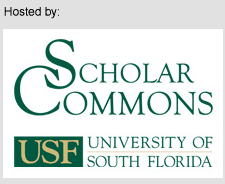Author Biography
Logan Rutten https://orcid.org/0000-0001-7508-2889
Correspondence should be addressed to Logan Rutten, University of North Dakota; Education Room 284; 231 Centennial Drive Stop 7189; Grand Forks, ND 58202-7189; U.S.A. Telephone: 701-777-3577 Email: logan.rutten@UND.edu
Logan Rutten is an educator whose research investigates practitioner inquiry as professional learning for educators across the career span and particularly within school-university partnerships such as Professional Development Schools.
Danielle Butville https://orcid.org/0000-0003-4609-1449
Danielle Butville, The Pennsylvania State University, Franco Building, #106 Reading, PA 19610 U.S.A. Telephone: 724-355-9840 Email: drz5018@psu.edu
Danielle Butville is Assistant Director of the Holocaust, Genocide and Human Rights Education Initiative at Penn State. Her research explores inquiry as stance and pedagogy in K-12 classrooms.
Wendy Lane Smith
Wendy Lane Smith, Larry J. Macaluso Elementary School, Red Lion Area School District, 1195 Windsor Road, Red Lion, PA, 17356 Telephone: 717-246-8389 Email: smithw@rlasd.net
Wendy Lane Smith is a fifth-grade teacher in the Red Lion Area School District (Red Lion, Pennsylvania) where she teaches reading, writing and social studies.
Boaz Dvir https://orcid.org/0000-0002-4572-0058
Boaz Dvir, The Pennsylvania State University, 4A Willard Building, University Park, PA 16802 U.S.A. Telephone: 904-307-9075 Email: bcd14@psu.edu
Boaz Dvir, Associate Professor of Journalism at The Pennsylvania State University, directs the Hammel Family Human Rights Initiative and the Holocaust, Genocide and Human Rights Education Initiative at Penn State.
Abstract
Amid turbulent times and politically polarized communities, many teachers require support if they are to teach or engage with difficult topics in their curricula or professional practices, yet few teachers actually receive any formalized support for addressing such topics. This article responds by describing the work of an inquiry community of inservice educators that was designed to assist teachers in learning to address difficult topics by integrating practitioner inquiry and student inquiry with asset-based and trauma-informed lenses. The article outlines the community’s conceptual foundations then describes how a team of university-based teacher educators facilitated the community’s work. A participating teacher’s reflection illustrates how the support of the community transformed her teaching of one potentially difficult topic—the American Civil War—as she shifted her pedagogy from being a provider of knowledge to facilitating students’ inquiries. The article highlights implications for future scholarship about professional learning, student inquiry, and teacher retention.
Recommended Citation
Rutten, Logan; Butville, Danielle; Smith, Wendy Lane; and Dvir, Boaz
(2023)
"Practitioner Inquiry for Turbulent Times: Learning to Take an Inquiry Stance Toward Teaching Difficult Topics Through a Teacher Inquiry Community,"
Journal of Practitioner Research: Vol. 8
:
Iss.
2
, Article 5.
https://doi.org/10.5038/2379-9951.8.2.1251
Available at: https://digitalcommons.usf.edu/jpr/vol8/iss2/5
